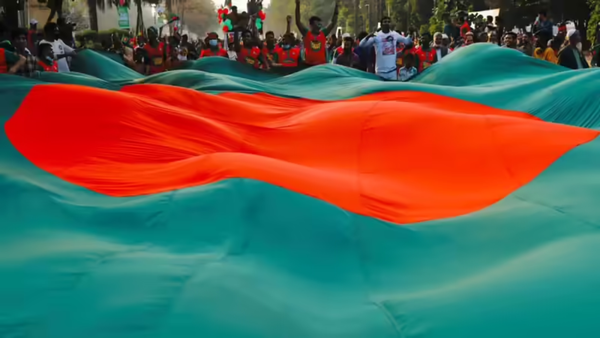
As political leaders grapple with the failed Indigenous voice referendum, the Queensland premier concedes the path to treaty is a long way off.
The NSW coalition has also weighed in, with upper house MPs supporting a motion to rule out a state-based voice.
Queensland vowed to push ahead with its own plans after the national referendum was defeated.
But Premier Annastacia Palaszczuk said a path to treaty would require bipartisan support after Liberal National Party leader David Crisafulli walked back on his commitment.
A snap Queensland Labor caucus meeting was being held on Thursday night over the path to treaty, following the premier's comments.
Mr Crisafulli said he would no longer support a path to treaty after "one of the most divisive debates in my life".
With votes still being counted, 69 per cent of Queensland voters opposed the constitutional change - the highest of any state or territory.

His call comes after voting in May to support a path to treaty set to examine Queensland's colonial past through a truth-telling inquiry and First Nations Treaty Institute.
"When the LNP originally agreed to enabling legislation for the path to treaty we did so in good faith as a genuine effort to promote better outcomes for Indigenous Australians," Mr Crisafulli said in a statement.
"In the days since the referendum as I have travelled throughout the state it has become clear to me the path to treaty will only create further division."
Ms Palaszczuk said a Queensland treaty was a long way off.
"That would require bipartisan support," the premier said.
"The next stage is truth telling. That's a three-to-four-year process
"For effective reconciliation and path to treaty, that would require bipartisan support."
Labor colleagues were reportedly unhappy with her statements and a snap state party room meeting was held via phone hookup on path to treaty late on Thursday.
In NSW, coalition MPs backed a motion calling on the Labor government to rule out a legislated voice to state parliament.
Despite having personally supported a federal voice, Opposition Leader Mark Speakman also pulled back from a NSW voice or the pursuit of a treaty.
"A voice to the NSW Parliament is not a policy position of the NSW opposition," he said.
He called instead for practical and urgent delivery of initiatives to close the gap between Indigenous and non-Indigenous people.

NSW Premier Chris Minns said the referendum outcome had not changed his government's mandate to begin the treaty process.
Consultation with Indigenous people is to begin as soon as possible, while the premier also did not close the door on a voice to NSW parliament.
"I don't necessarily believe the will of the people of Australia is to stop progress (on) reconciliation or closing the gap metrics," Mr Minns said.
In Victoria, statewide treaty negotiations are expected to begin early next year.
Victorian Opposition Leader John Pesutto has declined to commit his party to supporting a treaty.
In 2022, the Victorian coalition backed legislation to establish a Treaty Authority to oversee negotiations.
Mr Pesutto, who was not in state parliament at the time, flagged it was too soon to declare a party stance on treaty.
"Our position is we're going to wait and see what the government proposes," he said.
"We're obviously like everybody across the country ... assessing the implications of what happened on the weekend."
The ACT has already established an elected Indigenous voice to parliament that advises government.
The NT has a Treaty Unit, Tasmania has committed to progressing truth-telling and treaty and South Australia legislated a state-based voice to parliament early this year.
Western Australia has no treaty or truth-telling plans but its constitution was altered in 2015 to recognise Indigenous people.







